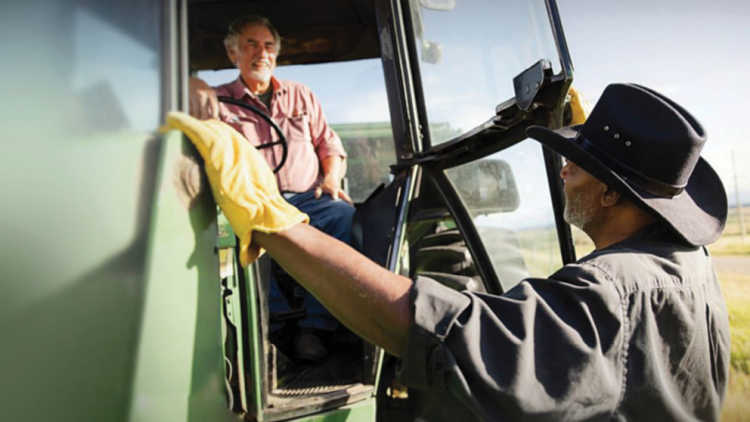Name your executor wisely

The following is a fictional case study created by BDO.
Carl had been farming for about 40 years when he passed away. His career started when he and his young wife Eloise bought a tired old dairy operation. They worked hard to create a small but well-managed farm.
With three children arriving in quick succession, they seemed to be a very happy family, but about 15 years ago, Eloise and the kids left the farm and Carl continued on his own. He did not participate much in community activities or farmer meetings, but the story came out that Eloise wanted a divorce and the kids, now young adults, wanted nothing to do with Carl or the farm.
Carl had no family nearby and one of the only people he spoke to regularly was the milk truck driver, Steve. They were on friendly terms, but they did not socialize beyond a quick chat every day or two.
An unexpected executorship
When Carl passed away suddenly, Steve was shocked to learn that Carl had named him as executor in his will. With no experience in this role, Steve really didn’t know much about Carl, the status of his estate or what his wishes were for putting his affairs in order. He could have declined the role and the court would appoint an executor, but he felt compelled to see it through for Carl.
It became obvious that he had not understood the magnitude of the responsibility and commitment that came with the job.
It was a disaster. It became obvious that he had not understood the magnitude of the responsibility and commitment that came with the job. The first problem was the immediate need to organize care of the livestock and cropping operations. Carl’s will had not been updated since shortly after Eloise and the kids left and, as Steve learned, before Carl had incorporated his business. Record-keeping was scattered or non-existent, and Carl’s accountant confirmed that his tax return filings were several years in arrears.
The lawyer who drafted the will died years ago. To make matters worse, unpaid creditors were clamouring for payment. Steve started receiving emails from Eloise and the kids’ lawyers, pushing for information and stating their claim to Carl’s assets and investments, and even demanding specific items from the house. There were multiple agendas coming at Steve.
Understanding the process
Steve learned the first step in settling the estate was to go through the probate process, having the provincial court approve the will and give Steve permission to act on behalf of the estate. Provincial courts charge a fee for probate and since Carl lived in a province with a high probate rate, Steve had to arrange to cash in some of Carl’s investments to cover $30,000 in probate fees.
It took six months for Steve to gather the necessary information for the probate application, arrange for payment of the fees and wait for the courts to approve it. In the meantime, the farm and buildings required attention but access to funds was limited. Steve was beginning to understand the grim reality of his situation.
Steve had never owned a business and was overwhelmed by the decision-making, banking, bill payments, record keeping, tax filing and handling the constant barrage of mail. Even the little things were a challenge – the keys for the loader tractor weren’t located for months. The passwords Carl had for everything online, including email access, went with him to his grave. Carl also had a collection of antique guns and a house jammed to the rafters with furniture, paperwork and everything Eloise had left behind.
The dairy farm operated through a corporation. Because the business wasn’t continuing to operate, the company had to be wound up and the assets distributed first from the corporation to the estate and then to the beneficiaries. This involved more complicated tax and legal reporting requirements which left Steve very anxious.
The painful exercise dragged out over more than four years and the result was less than satisfactory. It dominated Steve’s free time and all the drama with Carl’s family took a toll. Even though he was entitled to some compensation for his efforts, there was no upside for Steve.
Planning for the future
The experience compelled him to think very carefully before choosing an executor for his own will and estate. His lawyer and accountant told him to consider people he knew that had the skills and aptitude to deal with the responsibilities.
They also advised Steve to ask candidates if they are willing to be an executor and to be willing to invest some time explaining the will and his wishes should something happen to him. Naming more than one executor can spread the work, but the co-executors should be like-minded and able to work together.
The role of executor is not necessarily an honour. If the estate isn’t organized and up to date, it can be an onerous task. For someone uncomfortable with paperwork, emails and phone calls, it can be a nightmare.
Help your executor do their job
Keep your will up to date and communicate any changes to your executor. Include the following:
People – business contacts, suppliers, customers, professionals
Passwords – software, phone, equipment, other systems
Paperwork – will, banking agreements, insurance policies, other agreements, investments
Assets – detailed list of assets
Liabilities – detailed list of debts both formal and informal
Personal effects – collections, antiques, jewellery, household items that may have significant monetary or sentimental value and what should be done with them
BDO is a trusted advisor for agricultural accounting, tax planning and business consulting. Visit BDO or follow on X.
From an AgriSuccess article.

Take proactive steps towards farm transition early and include the next generation in the process.
